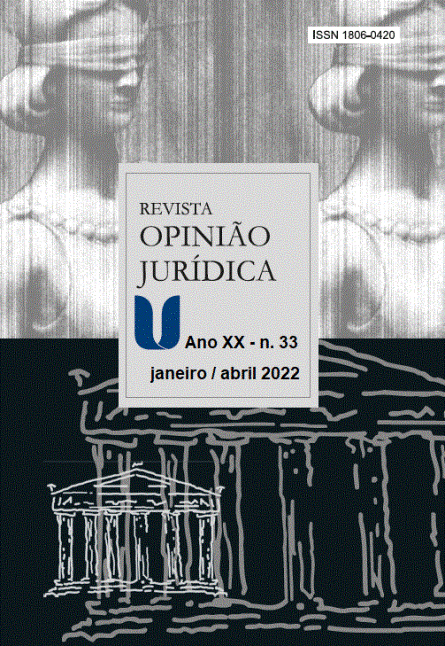MEANINGFUL ENGAGEMENT: SOUTH AFRICAN CONTRIBUTIONS TO STRUCTURAL LITIGATION IN BRAZIL
DOI :
https://doi.org/10.12662/2447-6641oj.v20i33.p165-201.2022Mots-clés :
Meaningful Engagement, South Africa, Structural Litigation, Structural RemediesRésumé
Objective:The purpose of this article is to analyze a structural remedy model developed by the Constitutional Court of South Africa, called Meaningful Engagement, which can minimize the impact of traditional objections to structural litigation, as it increases community participation and interinstitutional dialogue between the various actors responsible for the solution of the problem.Methodology: As a research methodology, in addition to the traditional bibliographic research around the doctrine developed on the subject, a more in-depth analysis of the two paradigmatic cases that served as the basis for the development of the South African institute, Olivia Road and Joe Slovo, was carried out.
Results: It is concluded that are intrinsic and extrinsic reasons for seeking inspiration in the Meaningful Engagement model. The South African model, by valuing institutional dialogue and public participation, mitigates the usual criticisms to structural litigation.
Contributions: From the results, it is observed that: a) in dialogic structural remedies, affected communities are treated with dignity and can influence the formulation of public policies that concern them.; b) public participation guarantees the structural injunctions transparency and, to the judges, greater technical capacity, since only with the inclusion of the social segments affected by the problem that is intended to be overcome will the judge be able to produce measures consistent with the real needs the concrete case; c) finally, public participation and institutional dialogue also collaborate to mitigate the criticisms usually made of structural processes.
Téléchargements
Publiée
Comment citer
Numéro
Rubrique
Licence
La soumission d'articles à l'analyse de l'équipe éditoriale de Revista Opinião Jurídica implique, par cet acte même, la cession, de la part de(s) auteur(s), à Centro Universitário Christus - UNICHRISTUS, de l'oeuvre afin de reproduction, divulgation, distribution, impression, publication et de la rendre disponible, selon les normes de publication (Norma de Publicação 414 R. Opin. Jur., Fortaleza, ano 12, n. 16, p. 1 - 414, jan./dez. 2014) à la charge de UNICHRISTUS, sous toute forme ou moyen existant ou futur, selon l'article 49 et suivants de la Loi 9.610/98.
Paragraphe premier. La cession objet de ce terme est faite à titre non exclusif et gratuit, incluant la totalité de l'oeuvre.
Paragraphe 2: UNICHRISTUS peut rendre disponible, pour des finalité didactiques, l'oeuvre complet ou en parties, des changes à son contenu étant interdites, à l'exception de corrections ou formatages nécéssaires.
Paragraphe 3: La cession est valable dans tous les pays, en langue portugaise ou version traduite, selon l'intérêt de UNICHRISTUS.
LES RESPONSABILITÉS
Au moment au l'article est soumis à la revue, le(les) auteur(s) prend(prennent) la responsabilité exclusive concernant l'intégralité du contenu de l'oeuvre. Toute mesure judiciaire ou extra-judiciaire sera, donc, la responsabilité de l'auteur.
Paragraphe unique. Au cas où plusieurs personnes sont les auteurs de l'oeuvre, leur responsabilité sera solidaire, sauf preuve contraire.































